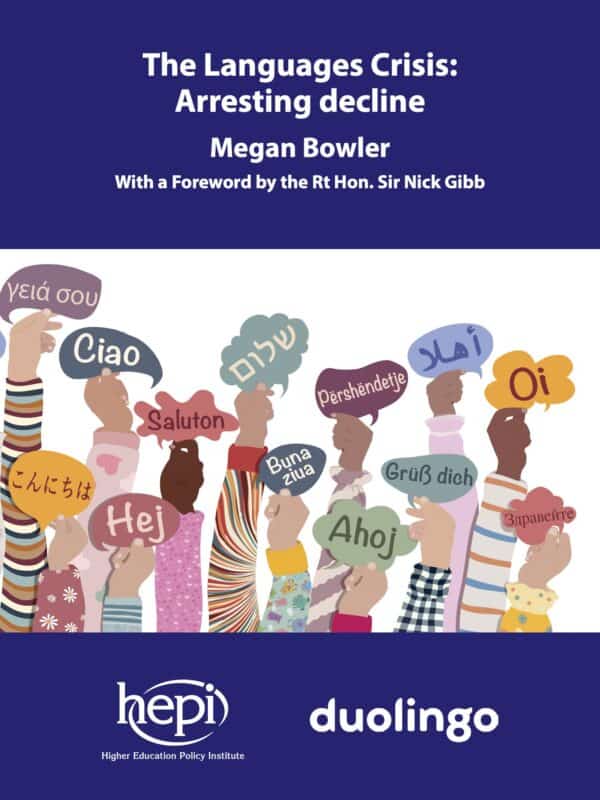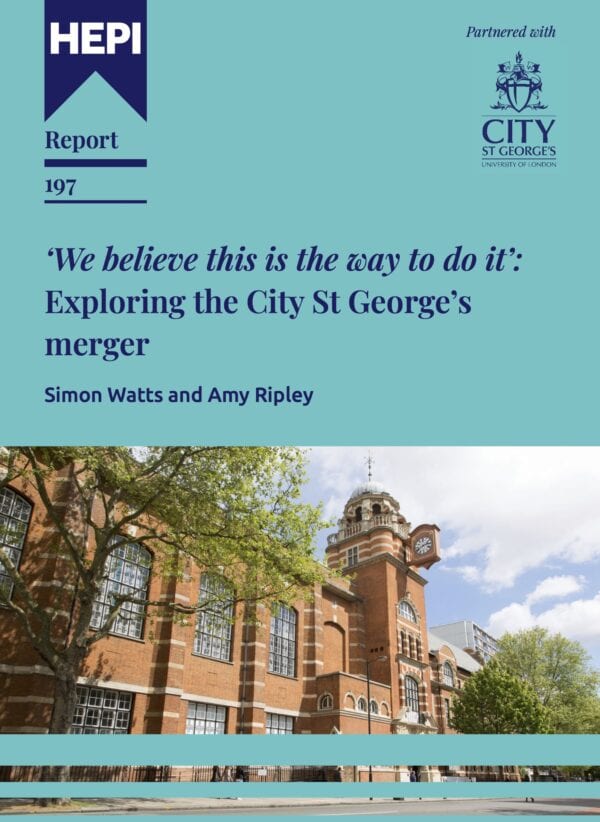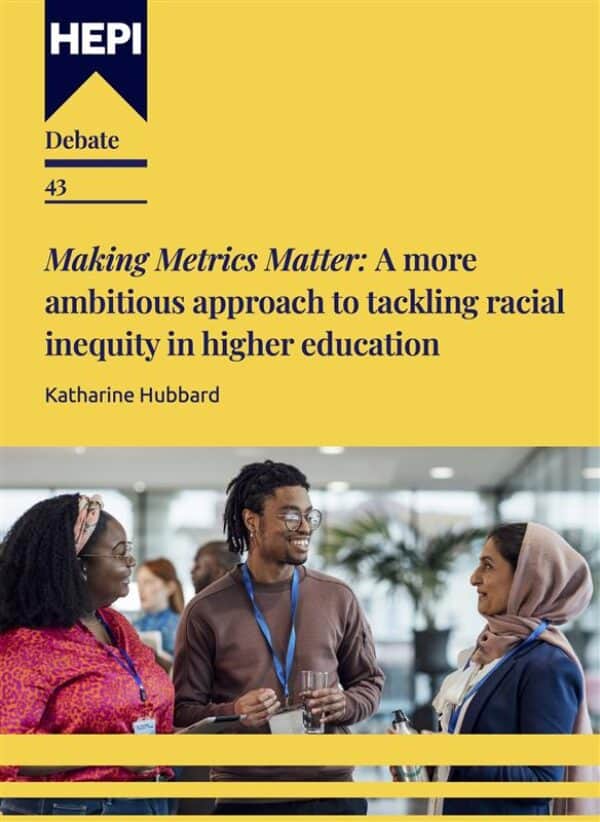The Languages Crisis: Arresting Decline
- More A-Levels in PE than in French, German & Classical Languages combined.
- Language teacher recruitment is at just 43% of the official target.
- Undergraduate enrolments in ‘Language & Area Studies’ down 20% in 5 years.
A new report from the Higher Education Policy Institute, The Languages Crisis: Arresting decline by Megan Bowler (HEPI Report 192), sponsored by Duolingo, shows a big drop in formal language learning.
The report starts with the current state of language learning in UK’s schools and universities:
- Only 2.97% of A-Levels taken in 2024 were for Modern Foreign Languages, Classical Subjects, Welsh (Second Language) and Irish.
- There are now more A-Level entries for Physical Education than for French, German and Classical Languages combined.
- The percentage of Year 11 pupils studying a language for GCSE is 20 percentage points lower in poorer areas than affluent ones (69% versus 46-47%).
- Language teacher recruitment consistently falls well below government targets – in 2024, just 43% of the target was reached.
- Declines in the uptake of degree programmes in languages have continued across all modern language groups each year since 2020 (when a previous HEPI report on the issue was published).
- Since 2014, 17 post-1992 universities have lost their modern languages degrees, bringing the total closures to 28 and leaving modern languages in just 10.
The paper includes a Foreword by the Rt Hon. Nick Gibb, the former Minister for Schools, and ends with 10 clear recommendations for reversing the decline:
- Action on teacher recruitment, such as reinstating the international relocation payment for trainee teachers (cut in April 2024).
- Better qualification pathways, such as making language-learning opportunities a statutory entitlement for pupils up to 18 (with a new Level 3 certificate in Applied Languages) and, in England, keeping a language GCSE as a requirement for the English Baccalaureate (EBacc), which is an important school accountability measure.
- Revitalising language hubs to create networks for languages beyond French, German and Spanish to help state schools benefit from the staff and resources of the independent school sector while creating links with higher education institutions.
- Enhancing multilingualism by providing centralised support and streamlining the pathway for qualification entries for languages spoken at home and taught in supplementary schools – one-in-five pupils are bilingual to some degree.
- Supporting British Sign Language (BSL), including adopting a clear plan for staffing and resources to ensure the success of the forthcoming GCSE in BSL.
- Making languages a priority in higher education, including strengthening language provision through more joint provision with other departments or with language specialists at other institutions.
- Improving the oversight of languages in higher education, rather than relying on the changing vagaries of student demand, with a view to preserving provision for small-but-strategically-important languages.
- Targeting government funding to support languages in higher education, with the goals of preventing the loss of strategic languages and tackling regional cold spots.
- Designing additional pathways for lifelong language learning via the Lifelong Learning Entitlement (LLE) and the expansion of alternative applied language qualifications for learners of all ages.
- Establishing a clear voice for languages in the corridors of power, using the model of Chief Scientific Advisers to co-ordinate progress on improving language learning and to provide updates on relevant research-informed evidence.
Megan Bowler, the author of the report and a DPhil student in Classics at the University of Oxford, said:
‘Language learning is facing new challenges. There is a common misconception that Google Translate and now AI tools are making language capabilities redundant. On the contrary, the skills and intellectual values that a “linguistic mindset” can instil are even more important in this age of rapid technological change. Close and critical analysis, oracy, cultural adaptability, creative problem-solving, precision and clarity of expression are exactly what ChatGPT struggles to replace.
‘In the UK, Languages disciplines are facing a vicious cycle. For the majority of schools, problems with teacher recruitment are leading to even lower rates of participation in language learning. Low uptake in higher education is leading to cuts in university language provision and degree programmes. The shortage of language skills is holding employers back and the teacher recruitment crisis continues worsening. Intervention and investment are needed to prevent a critical skills deficit.’
In his Introduction to the report, Michael Lynas, UK Country Director at Duolingo, writes:
‘This report, five years on from HEPI’s landmark Languages Crisis, comes at a critical moment. At a time when technology is reshaping how we learn, when support for formal language learning is under pressure, and when national cohesion and global connection matter more than ever, we need to rethink the role that languages play in our society.
‘Too often, the conversation about language learning in the UK is framed negatively: that we’re no good at it, that young people aren’t interested, that English is enough. The evidence says otherwise. Duolingo data show that the UK ranks second globally for the proportion of learners studying more than one language. And it’s under-22s who are leading the charge, choosing Japanese, Korean and Chinese in increasing numbers.
‘What we’re missing is not interest, but good pathways. We need a national approach that joins the dots between early enthusiasm and formal opportunity; between self-directed learning and academic recognition; between the languages we speak at home, and the languages we’re supported to learn at school.’
In his Foreword to the new report, the Rt Hon. Nick Gibb says:
‘I hope Megan Bowler’s excellent report will inspire schools and pupils to take the study of languages seriously and encourage more schools to insist the majority of their pupils study a language through to GCSE.
‘In an increasingly competitive world economy, we owe it to the next generation to ensure they are as prepared as their contemporaries overseas to compete in this environment. England is now fourth in the world in the reading ability of our 9 and 10-year-olds (PIRLS) and eleventh in the world in Maths (PISA). We need to make the same progress in our ability to speak and write in the languages of the world around us.’
Nick Hillman, Director of HEPI, said:
‘Back in 2020 in the depth of the pandemic, we published a report highlighting that there had been a terrible decline in formal language learning in the UK. Depressingly, the problems have become worse in every year since.
‘There is a once-in-a-lifetime opportunity to set a new course. I remain hopeful that the Curriculum and Assessment Review will propose sensible ideas for rejuvenating the learning of all languages, from ancient and modern languages to heritage languages and British Sign Language. Our new report includes lots of constructive ideas for people to engage with.
‘Some of the current problems stem from the poor decision in the 2000s to stop languages being compulsory for pupils after the age of 14. Ministers could reverse such decisions, but first they need to tackle the shortage of teachers.’
Notes for Editors
- Duolingo is the world’s #1 way to learn a language. Available in 100+ countries, we’re on a mission to bring free language education to the world.
- The Higher Education Policy Institute (HEPI) aims to shape the higher education policy debate with evidence. UK-wide, independent and non-partisan, it is funded by organisations and universities that wish to see a vibrant higher education debate.
- Megan Bowler is a DPhil student in Classics at the University of Oxford and a Lecturer in Ancient Greek Language and Literature at Oriel College and the Faculty of Classics.
- HEPI will be hosting a webinar with UCAS on Tuesday, 12 August looking ahead to this year’s results day and higher education admissions – more details here.
- HEPI will also be hosting the UK launch of the OECD’s Education at a Glance on 9 September – to book an in -person or virtual place, see here.







Comments
Add comment